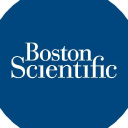Boston Scientific Earnings Preview: New Products and Margins In Focus
- Should You Pick Boston Scientific Stock After A Solid Q4 And 13% Uptick This Year?
- What’s Next For Boston Scientific Stock After 5% Gains In A Week?
- Should You Pick MGM Resorts Over Boston Scientific Stock For Better Returns?
- Which Is A Better Buy – Boston Scientific Stock Or Abbott?
- What’s Next For Boston Scientific Stock After Outperforming During The 2022 Inflation Shock?
- New Product Launches To Aid Boston Scientific’s Q1
Boston Scientific (NYSE:BSX) is scheduled to release its earnings for Q3 2013 on October 24. The medical device maker’s revenue has been declining since 2009 due to increased competition and pricing pressures. However, it has been rebuilding its product pipeline and cutting costs, and these initiatives seem to have started paying off recently. Last quarter, its revenue increased by 2% (on a constant currency basis), while its gross margin improved from around 68% to near 71%. The markets have taken note of these improvements, and the stock is currently trading almost 120% above year-ago levels.
Going forward, we expect Boston Scientific’s new products to continue growing, and offset some of the pressure from intense competition. During the Q3 conference call, we are particularly keen to hear about the next-generation subcutaneous-ICD (S-ICD) and Watchman devices. We also expect Boston’s profit margins to continue improving going forward as it further executes its strategic plan. Our price estimate for the company’s stock is around $13, which is almost 5% above the current market price.
See our full analysis for Boston Scientific
Key Businesses Are Stabilizing
Interventional Cardiology (IC) and Cardiac Rhythm Management (CRM) are two of the biggest divisions within Boston Scientific, together comprising over 50% of the value in its stock, according to our estimates. The IC division derives its revenue mainly from coronary stents and catheters, while the CRM division makes money by selling pacemakers and defibrillators.
In the past few years, the sales of both of these divisions have declined rapidly – at high single digit or double digit rates. The IC division was primarily impacted by a decline in the number of procedures, caused by a weakening of the U.S. economy and the austerity measures in Europe. On the other hand, sales of the CRM division were falling due to significant competition and safety issues related to some its implantable cardioverter defibrillators (ICD).
However, both of these divisions seem to be slowly stabilizing as the macroeconomic headwinds weaken and new products are launched. In Q2, the rate of sales decline for IC and CRM was just 3% and 2% respectively, much better than our expectation at that time. We forecast the market shares of both of these divisions to stabilize going forward as new products continue to grow.
New Products Bring Hope
Boston Scientific has been remodeling its product portfolio in the last few years and has made at least 11 acquisitions in the past 18 months to accomplish this goal. [1] Here is a quick look at some of its most promising new products:
SYNERGY Stents: SYNERGY is a next-generation stent that dissolves inside the body within three months. It received CE approval in Europe in Q4 2012 and has shown impressive uptake even though it is priced at a premium. Based on its performance in Europe, we expect the device to also perform well in the U.S. once it is launched. It is currently being clinically tested in the U.S. and is expected to be rolled out in 2015-2016.
Promus Stents: Boston Scientific earlier sourced the PROMUS drug-eluting stents from Abbott Labs (NYSE:ABT). However, it has now started producing them in-house, a step that has helped increase its gross margins. The company also has an advanced version, called PROMUS Premier; it received CE approval in Europe in Q1 2013 and is expected to be approved in the U.S. Q4 2013. [2] Based on recent performance, we expect PROMUS and SYNERGY to continue growing in the next few years and stem the decline in Boston Scientific’s IC market share.
S-ICDs: Boston Scientific’s CRM division acquired Cameron Health in 2012, and received possession of a next generation of ICD (known as S-ICD) that does not require a transvenous lead to connect to the heart. The limited launch of this device is seeing robust demand, and we expect the trend to continue as hospitals prefer advanced S-ICDs over traditional ICDs due to safety concerns about the leads used by traditional devices.
Watchman: Another promising product in Boston’s CRM portfolio is Watchman, which is implanted in atrial fibrillation (irregular heartbeat) patients to reduce the risk of strokes. The device is already approved in many international markets including Europe and has seen a huge uptake, with implants growing over 50% on a yearly basis. In the U.S., it is expected to receive regulatory approval by Q2 2014. Boston Scientific estimates the overall market for the device to reach $500 million by 2020. [3] [4]
We expect the growth in S-ICDs and Watchman to help stabilize Boston Scientific’s market share in the CRM market, going forward.
Submit a Post at Trefis Powered by Data and Interactive Charts | Understand What Drives a Stock at Trefis
Notes:- Boston Scientific’s CEO Presents at Morgan Stanley Global Healthcare Conference, SeekingAlpha, September 9, 2013 [↩]
- Boston Scientific Corporation (BSX) Management Discusses Q2 2013 Results – Earnings Call Transcript, SeekingAlpha, July 25, 2013 [↩]
- Company website, Boston Scientific [↩]
- Boston Scientific’s Mahoney Says Watchman Key to Growth, Bloomberg, May 11, 2013 [↩]
